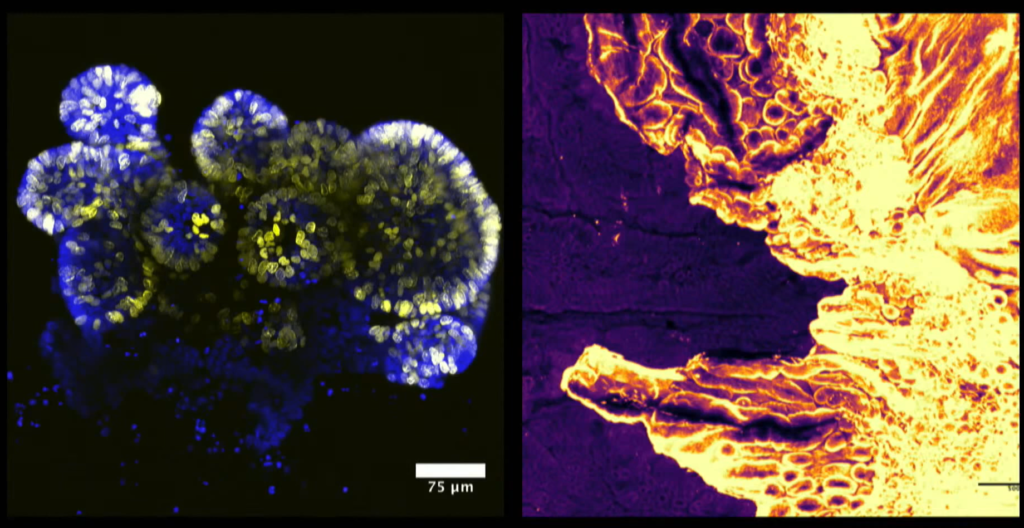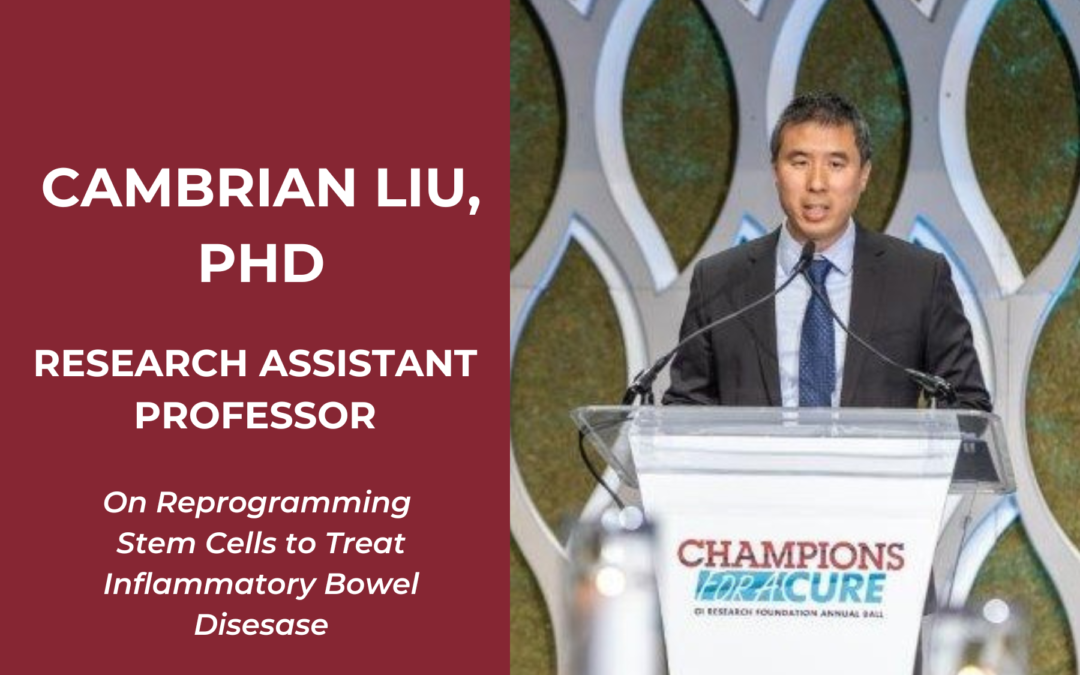Cambrian Liu, PhD, a newer member of the UChicago Medicine faculty, described his innovative research in regenerative stem-cell treatments for IBD patients.
“I believe that some patients respond to [IBD medications] because their bodies are able to tap into an innate wound-healing mechanism and regenerate the healthy lining that has been destroyed by Crohn’s disease and ulcerative colitis,” explained Dr. Liu, “Consider that a disease flare is like a forest fire, and the drugs we have in our arsenal are firefighters. What no drug does currently is focus on the restoration of the intestine after a flare.”

Dr. Liu and colleagues use stem cells — cells with strong capacity for regeneration — to learn how the bowel heals itself, with the hope of developing new treatments to help the bowel regenerate. Stem cells from patients whose bowels have healed following therapeutic intervention are used in the lab to grow organoids (mini-guts), and compared to organoids grown from those who have not been so successful. Dr. Liu also engineers these stem cell mini-guts to make them more resilient, and then uses them to treat patients with inflammatory bowel disease.
“I believe that regenerative medicine is the future of therapy for inflammatory bowel diseases, and will be a powerful complement to the anti-inflammatory medications currently in our arsenal,” said Dr. Liu.
On June 29, 2022 the GI Research Foundation proudly awarded its first annual RFP grants to seven projects, including Dr. Liu’s. The newly instituted RFP process, an open call for novel research projects that align with GIRF’s mission, will fund innovative research into better outcomes, innovative treatments and underlying causes of IBD, pediatric Celiac disease, perianal Crohn’s disease, and colorectal cancer, in its first year. More information on these projects, their outcomes, and future RFP grant cycles will be featured on GIRF’s website in the coming months.

